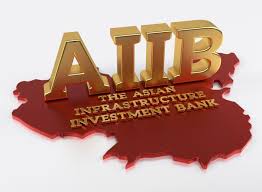We – grassroots movements, non-government organizations and civil society networks from Asian countries and the rest of the world welcome the fact that we were invited to submit our proposals and concerns during the process of drafting the Energy Sector Strategy of the Asian Infrastructure and Investment Bank (AIIB). We note that a number of these proposals were taken on in the final version.
We would like to express, however, our strong disappointment and disagreement with the Energy Sector Strategy paper still allowing for the financing of COAL. While it qualifies the conditions under which coal projects can be financed by the AIIB, the circumstances described still leaves the door wide open for coal support.
The deeply harmful impacts of coal mining and coal power plants on communities and the environment are undeniable and well-documented. Coal power’s huge contributions to the escalation of the climate crisis is well-established and widely acknowledged. It is in direct contradiction to AIIB’s avowed commitment to sustainable development and the Paris Agreement which expresses a goal of keeping temperature rise to below 1.5 degrees Celsius.
The problem of energy poverty still affects hundreds of millions of people in the region. Governments have used this as justification to expand the coal power industry – referring to coal as the quickest and cheapest solution to the problem of energy access. This is not an acceptable argument. Neither is it acceptable to present “clean coal technologies” as the alternative to old and obsolete coal technologies. There is no longer any excuse not to directly shift to renewable energy systems, which have already become more economically and financially feasible alternatives as evidenced by experiences in many countries including China and India.
Likewise, we disagree with AIIB supporting large hydro systems. For decades communities in Asia have resisted these projects for their devastating social and environmental impacts.
The AIIB, if it is to be true to its claims as a “green bank,” must marshal its resources to support a swift and just transition to renewable and clean energy systems for people and communities of Asia, and put an end to fossil fuels and other harmful energy as soon as possible. Our people and planet deserve no less. #
Signed:
Adivasi Mulvasi Astitva Raksha manch – India
AKSI – Indonesia
Alliance for Tax and Fiscal Justice – Nepal
All Nepal Peasant’s Federation (ANPFa) – Nepal
All Nepal Peasants Federation -Nepal
All Nepal Womens Association –Nepal
Alyansa Tigil Mina ( ATM) – Philippines
Aniban ng Manggagawa sa Agrikultura(AMA)-Philippines
ARENA –Asia/Regional
Asian People’s Movement on Debt and Development (APMDD) – Asia/Regional
Bank Information Center (BIC) – Europe/regional
Bangladesh Krishok Federation -Bangladesh
Bangladesh Jatiyo Sramik Jote -Bangladesh
Bukluran ng Manggagawang Pilipino ( BMP)– Philippines
Bulig Visayas – Philippines
Campaign for Climate Justice Nepal
Central Eastern European Bankwatch – Europe/regional
Center for Energy Ecology for Development (CEED) – Philippines
Center for Environmental Justice (CEJ) – Sri Lanka
CHANGE – Vietnam
Climate Reality Project -Philippines
Climate Watch-Thailand
CLEAN Bangladesh
Community Development Library – Bangladesh
Conservation Action Trust -India.
Debt Watch – Indonesia
EarthRights International
EquityBD – Bangladesh
FKNJ Jepara – Indonesia
Focus on the Global South – Asia/Regional
Freedom from Debt Coalition (FDC) – Philippines
Friends of the Earth (FOE) – USA
GEFONT –Nepal
Gitib –Philippines
Green Alternative, Georgia
GreenID –Vietnam
Greenpeace Southeast Asia
Greenpeace -Indonesia
Greenpeace -Philippines
Greenpeace -Thailand
Himalaya Niti Abhiyan – India
Human Rights Alliance – Nepal
Inclusive Development International – global
Indian Social Action Forum –India
Institute for Essential Services and Resources –Indonesia
Jagaran Nepal
Jatam – Indonesia
Kerala Independent Fishworkers Federation – India
Koalisi Anti Utang – Indonesia
KRUHA – Peoples Right to Water Coaliton – Indonesia
LDC Watch – Global
Legal Rights and Natural Resources Center/Friends of the Earth -Philippines
Leave it in the Ground Initiative (LINGO) – Europe
Migrant Forum in Asia (MFA) – Asia/Regional
Mines, minerals and People (mmP) – India
Monitoring Sustainability of Globalisation – Malaysia
Nadi Gati Morcha – India
National Federation of Hawkers -Bangladesh
National Federation of Hawkers – India
National Federation of Women Hawkers- India
National Women Peasants Association, Nepal
Nepal Youth Peasants Association –Nepal
NGO Forum on ADB – global
Our Rivers Our Life – Philippines
Paguyuban UKPWR Batang -Indonesia
Pakistan Fisherfolk Forum- Pakistan
Pakistan Kissan Rabita Committee – Pakistan
Philippine Movement for Climate Justice (PMCJ) –Philippines
RE:Common – Italy
River Basin Friends – India
Rural Reconstruction Nepal
Sanlakas Philippines
Sawit Watch – Indonesia
SEAFISH for Justice
Solidaritas Perempuan (Women) – Indonesia
South Asian Alliance for Povery Eradication (SAAPE)
South Asia Food Sovereignty Network
South Asia Peasants Coalition
SUPRO (Campaign for Good Governance) – Bangladesh
Task Force Detainees of the Philippines (TFDP) -Philippines
Trade Union Policy Institute(TUPI) -Nepal
Unnayan Onneshan –Bangladesh
Urgewald – Germany
VOICE – Bangladesh
Vietnam Sustainable Energy Alliance (VSEA) -Vietnam
WALHI/Friends of the Earth -Indonesia
Youth for Climate Justice ( Y4CJ) – Philippines

February 3, 2018 at 6:48 pm
The grass – roots organisations and NGOs have rightly expressed their apprehensions about financing COAL and large hydro projects which harm climate and cause pollution